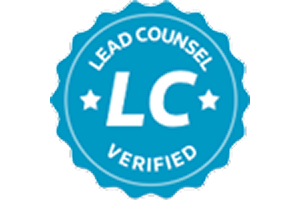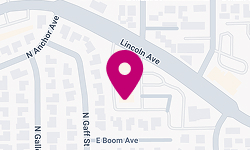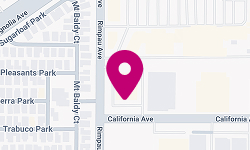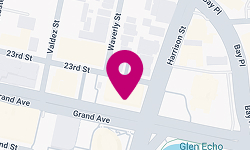- Free Consultation: (888) 883-6588 Tap Here To Call Us
California Employee Lawsuit: Steps To Take When Filing Sexual Harassment Claims

As a California employment attorney, I understand how difficult it is to come forward after experiencing sexual harassment at work. The fear of retaliation, embarrassment, or losing your job can make you feel trapped. However, California law does protect employees who take legal action, and you have the right to demand a safe workplace free from harassment. Filing a sexual harassment claim is a serious step, but one that can lead to justice and positive change. If you’re considering a sexual harassment lawsuit, knowing your legal rights and the proper steps to take is essential.
Sexual harassment is a violation of the California Fair Employment and Housing Act (FEHA), found in California Government Code § 12940(j). This law makes it illegal for any employer, supervisor, coworker, or third party to harass an employee based on sex, gender, gender identity, gender expression, or sexual orientation. Harassment can be verbal, physical, or visual, and it does not need to be motivated by sexual desire. Both men and women can be victims, and same-sex harassment is also unlawful.
Step One: Document The Harassment
The first step is to keep detailed records. Write down dates, times, locations, what was said or done, and who witnessed the events. Save emails, texts, or social media messages that support your claim. The more evidence you gather, the stronger your case becomes. Even if you’re unsure about filing a complaint, documenting everything protects your rights in case the situation worsens.
Step Two: Report The Harassment To Your Employer
Under the FEHA, employers are legally required to take reasonable steps to prevent and correct harassment. That starts with reporting the harassment to your supervisor, human resources, or through any internal complaint system your company provides. Make the report in writing and keep a copy for yourself. If your employer fails to investigate or retaliates against you, that can be the basis for additional legal claims under California Government Code § 12940(h), which prohibits retaliation for reporting harassment.
Step Three: File A Complaint With The Civil Rights Department (CRD)
Before filing a lawsuit, California law requires that you first file a complaint with the California Civil Rights Department (formerly the DFEH). This is called an “administrative complaint” or “pre-filing.” You must file this complaint within three years of the last act of harassment, under Government Code § 12960(e). The CRD may investigate or allow you to obtain an immediate “right to sue” letter, which gives you permission to move forward with a civil lawsuit in court.
Step Four: Consider Taking a Leave of Absence If You’re Experiencing Emotional Distress
Sexual harassment can affect your mental health. Under California’s Leave of Absence laws, including the California Family Rights Act (CFRA) and the Fair Employment and Housing Act, you may be entitled to take medical leave if the harassment has caused anxiety, depression, or emotional distress. A note from a licensed healthcare provider may be required. Your employer is prohibited from retaliating against you for taking protected leave.
Step Five: File A Civil Lawsuit With Legal Representation
Once you have a right-to-sue notice, you can file a sexual harassment lawsuit in California Superior Court. This is where your attorney builds a case using witness statements, documents, and expert testimony. Your attorney may file claims for:
- Sexual harassment (Gov. Code § 12940(j))
- Retaliation (Gov. Code § 12940(h))
- Failure to prevent harassment (Gov. Code § 12940(k))
- Intentional infliction of emotional distress
- Constructive discharge, if you were forced to quit due to the harassment
California law allows victims to recover damages for lost wages, emotional distress, punitive damages, and attorney’s fees.
Step Six: Be Prepared For The Legal Process
Lawsuits take time. After filing your complaint in court, there will be a period of discovery where both sides exchange information. You may be asked to give a deposition or testify about what happened. Many cases resolve through mediation or settlement, but if necessary, we will take your case to trial.
We will guide our clients through each step, protect clients’ privacy, and work to hold the employer or harasser accountable. The law is on your side—and so are we.
California Sexual Harassment Frequently Asked Questions
What Counts As Sexual Harassment In California?
Sexual harassment includes unwanted sexual advances, requests for sexual favors, or verbal or physical conduct of a sexual nature that creates a hostile work environment. It can be committed by supervisors, coworkers, clients, or vendors.
Do I Have To Report Harassment To My Employer First?
Yes. California law requires employees to give the employer a chance to fix the problem. If they fail to act or retaliate, you can file a claim with the California Civil Rights Department.
How Long Do I Have To File A Complaint With The Civil Rights Department?
You must file within three years of the last act of harassment. Once the CRD issues a right-to-sue notice, you have one year to file your lawsuit in civil court.
Can I Sue If I Was Harassed By A Coworker And Not A Supervisor?
Yes. Both supervisors and coworkers can be held responsible. The employer can also be held liable if they know about the harassment and fail to stop it.
What If I’m Afraid Of Retaliation For Reporting Harassment?
Retaliation is illegal under California Government Code § 12940(h). If your employer demotes, fires, or otherwise punishes you for reporting harassment, you can include a retaliation claim in your lawsuit.
Can I Take A Leave From Work If The Harassment Has Affected My Health?
Yes. You may be eligible for medical leave under CFRA or FEHA if your doctor certifies that you need time off for mental health reasons related to workplace harassment.
What Compensation Can I Receive In A Sexual Harassment Lawsuit?
You may be entitled to lost wages, future earnings, emotional distress damages, medical expenses, and attorney’s fees. Punitive damages are also available in some cases where the employer’s conduct was particularly harmful.
Do I Need A Right-To-Sue Letter Before Filing A Lawsuit?
Yes. You must obtain a right-to-sue letter from the Civil Rights Department before filing a civil lawsuit. Your attorney can request this on your behalf.
Can I Sue If I Quit Because Of Harassment?
Yes. If you were forced to quit because the harassment was unbearable and your employer failed to fix the problem, you may have a constructive discharge claim.
Will My Case Be Public If I File A Lawsuit?
Lawsuits are part of the public record, but we take steps to protect your privacy. Many cases are resolved in confidential settlements before trial.
Call A California Sexual Harassment Lawyer Who Will Stand With You
If you’ve been subjected to sexual harassment at work, you don’t have to face it alone. At Law Office of Joseph Richards, P.C., we help employees across California take legal action with confidence. We understand what you’re going through, and we’re here to protect clients’ rights under state and federal law.
Contact the California sexual harassment attorney at Law Office of Joseph Richards, P.C. today at (888) 883-6588 for a free consultation. With a track record of success, we offer a free consultation to discuss your potential case and explore your legal options. We represent employees throughout the entire state of California, and we are ready to stand with you.
























